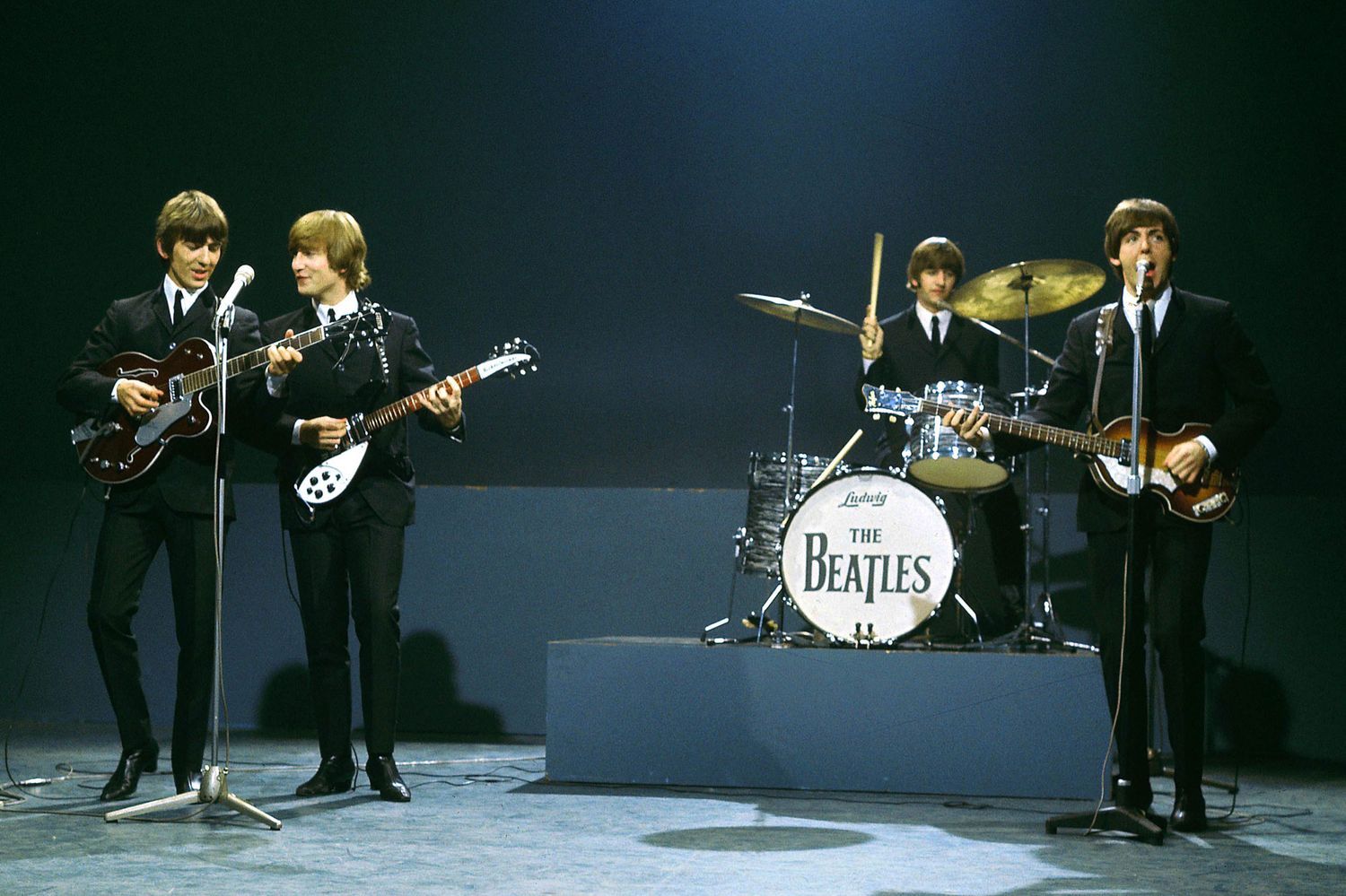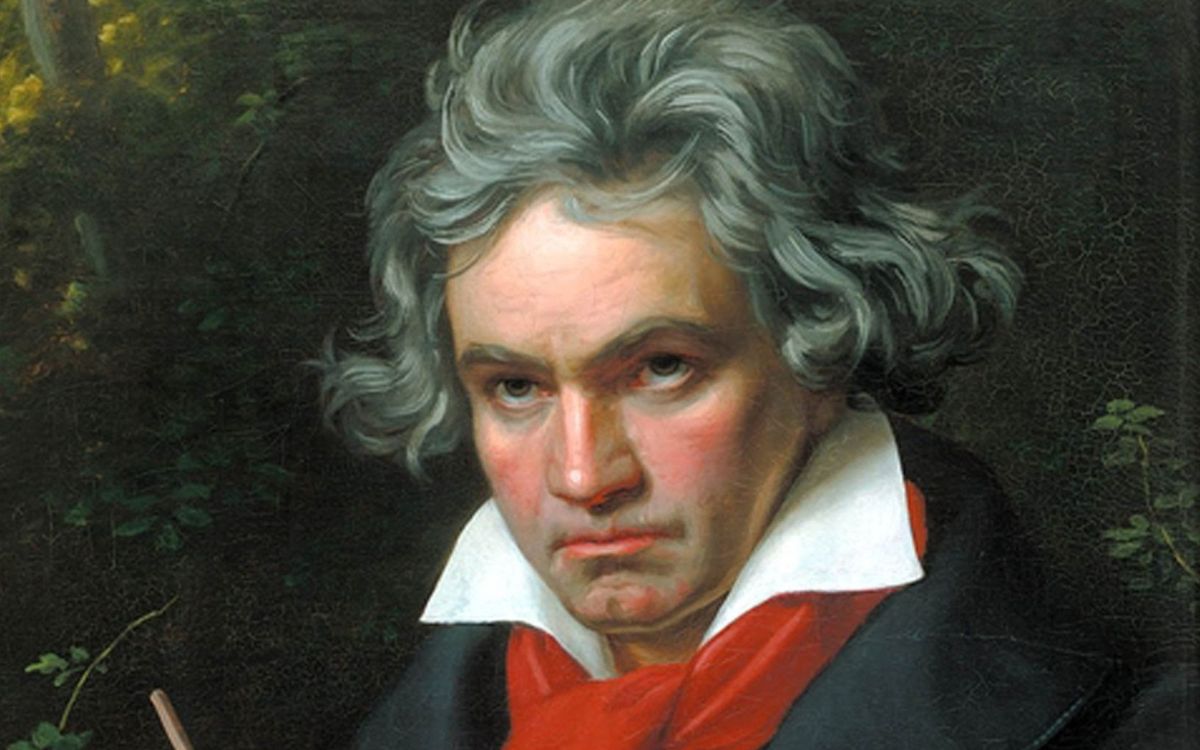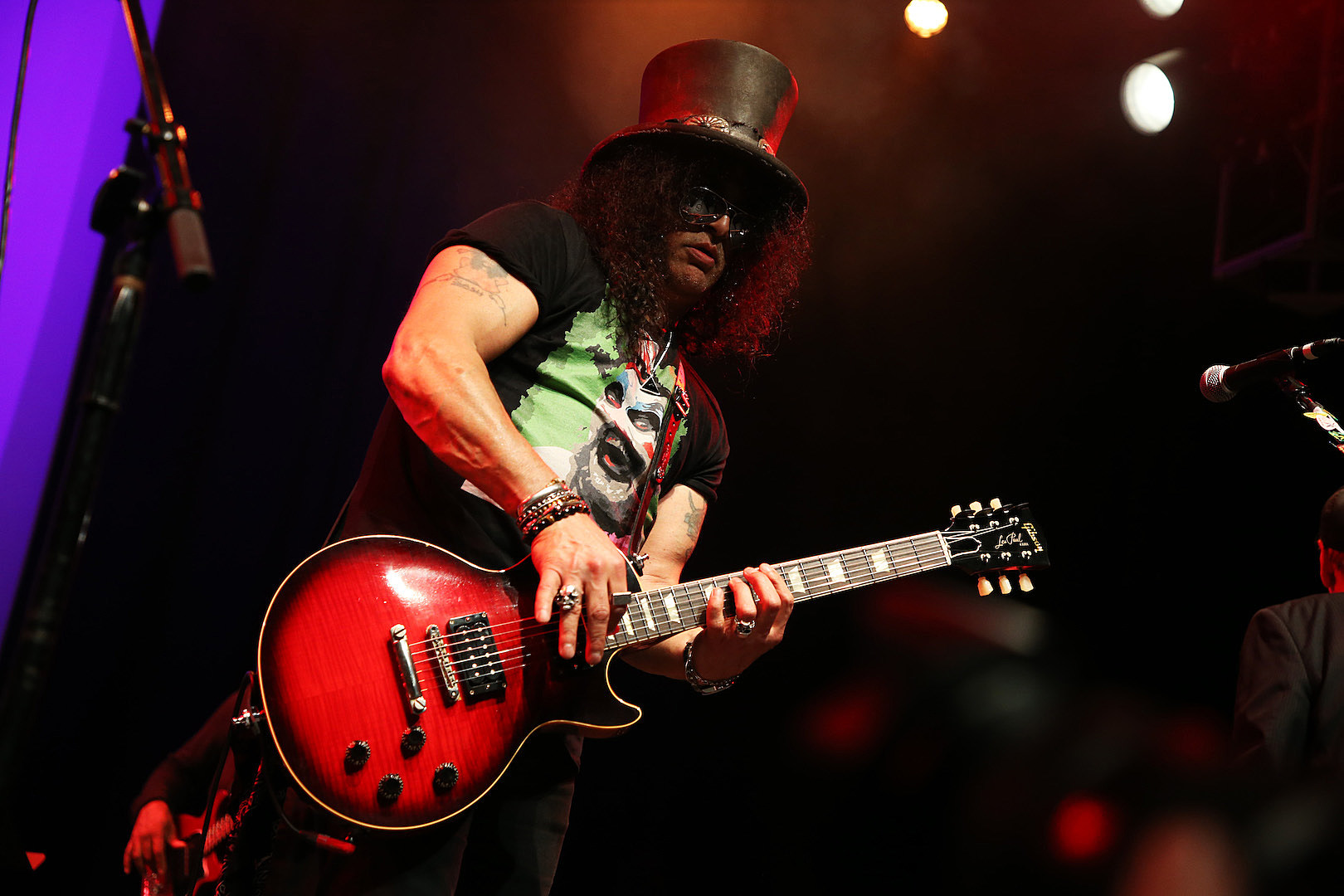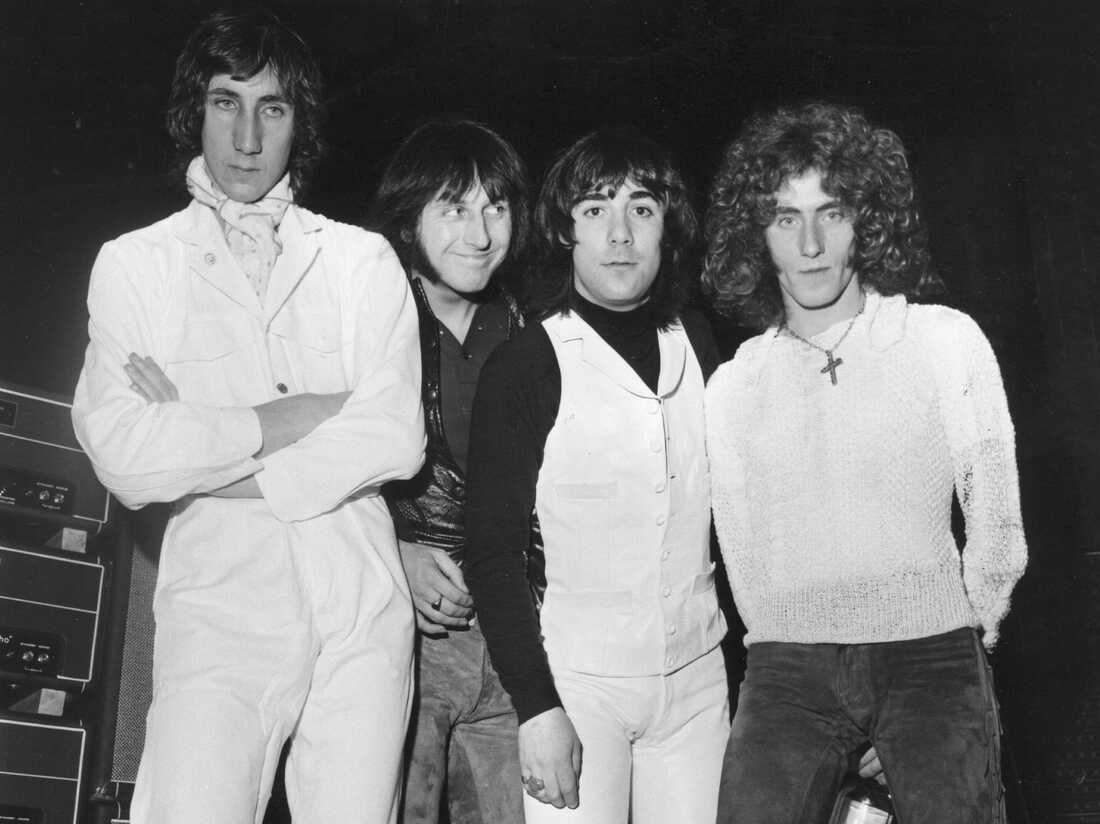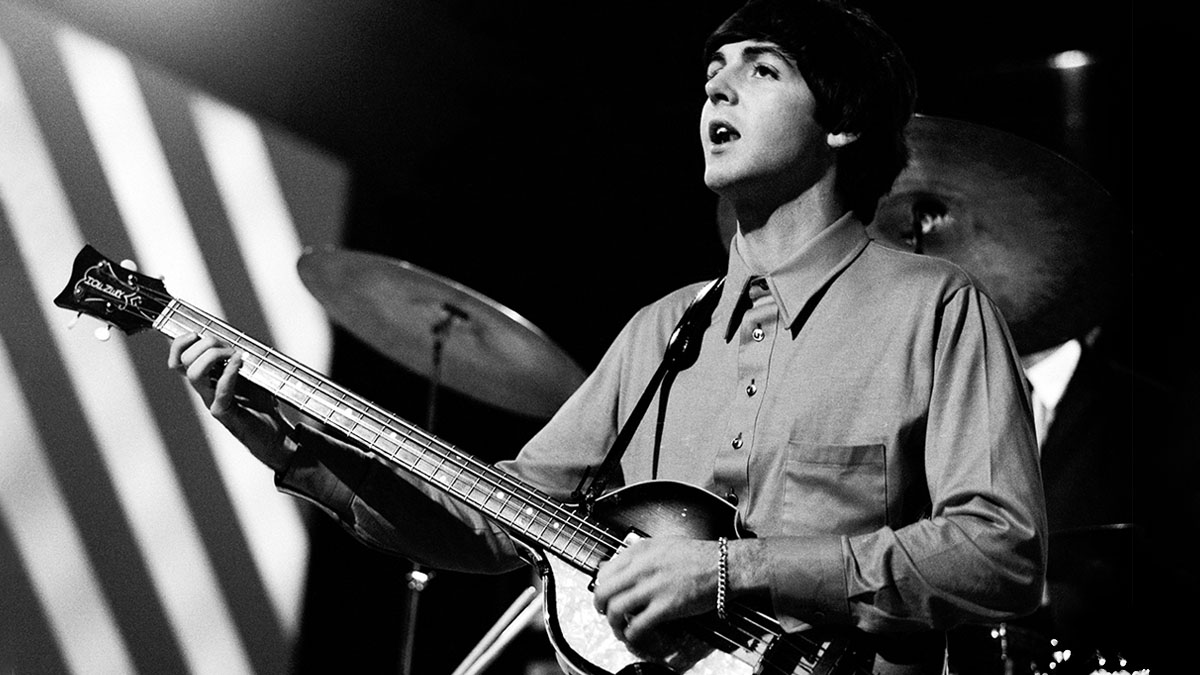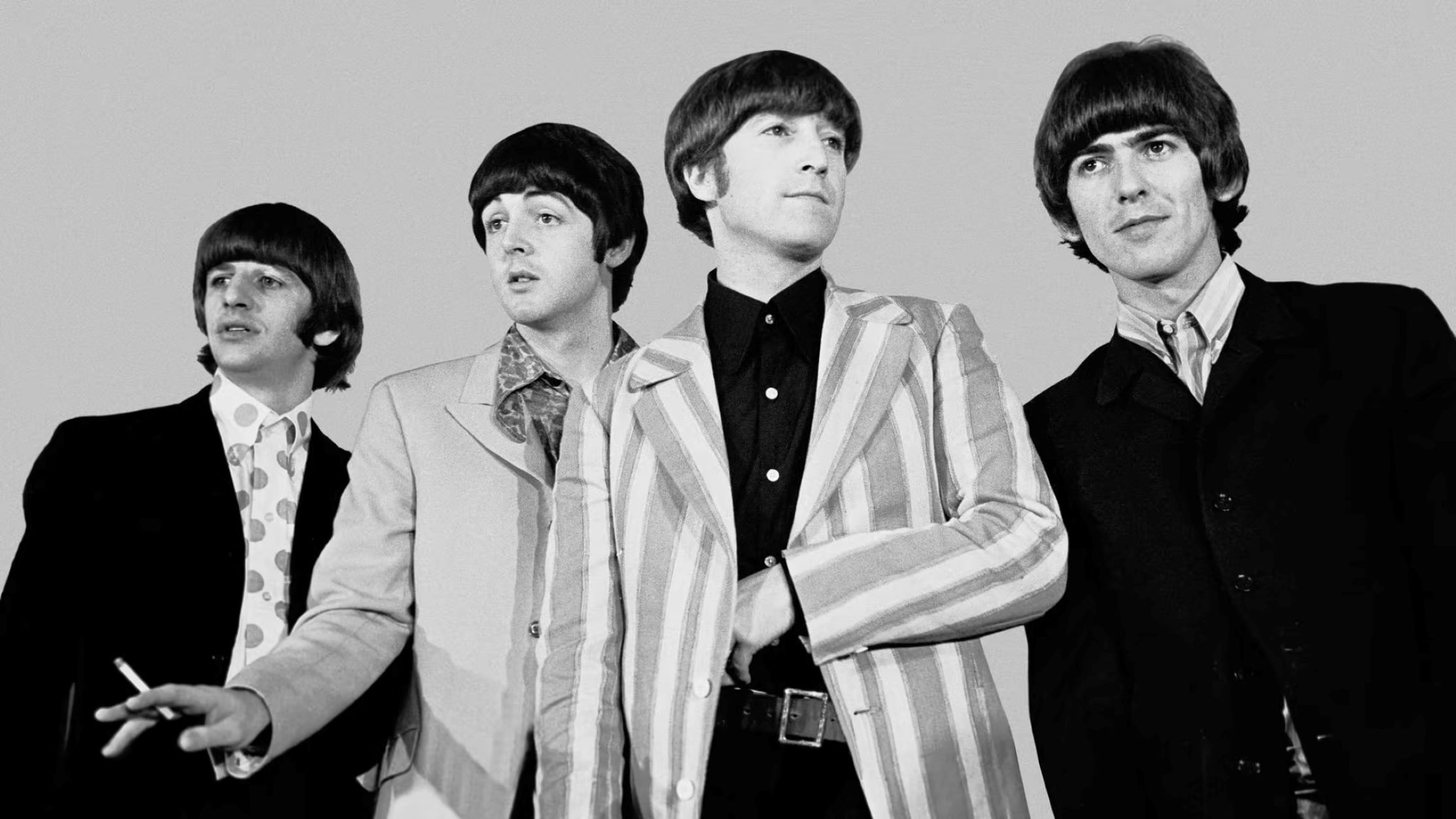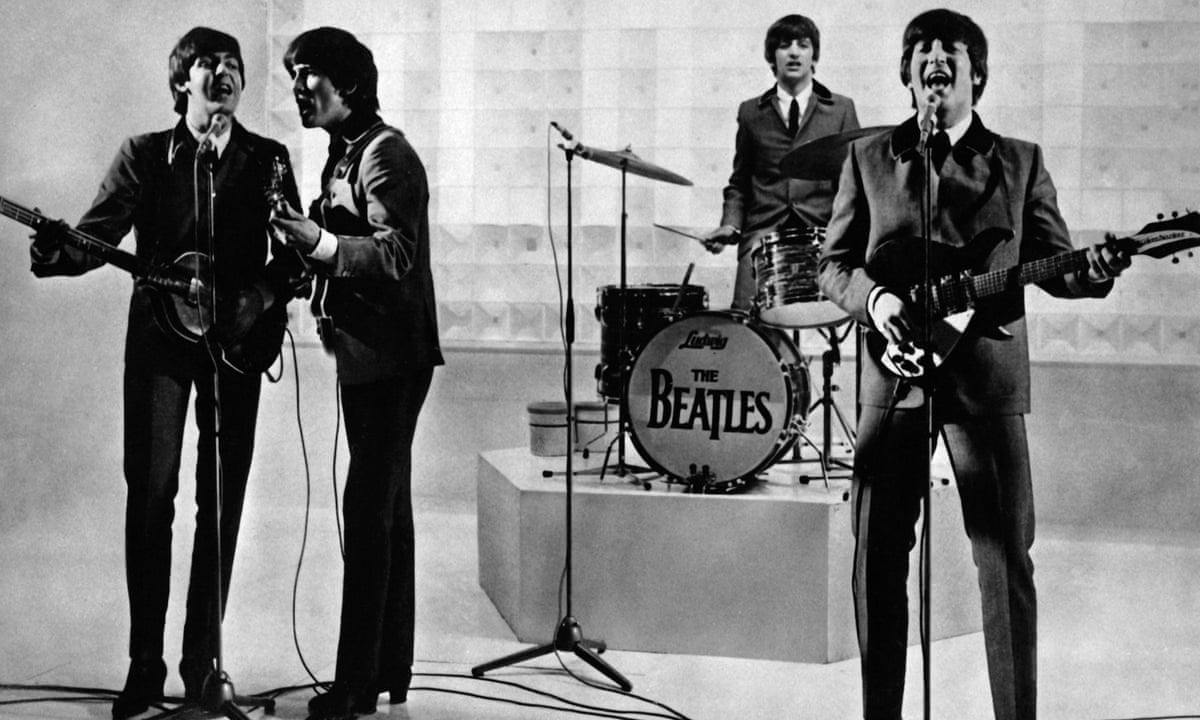

Rock
How Have The Beatles Influenced Rock Music
Published: November 22, 2023
Discover how The Beatles revolutionized rock music and left an enduring impact on the genre with their innovative sound and timeless songs.
(Many of the links in this article redirect to a specific reviewed product. Your purchase of these products through affiliate links helps to generate commission for AudioLover.com, at no extra cost. Learn more)
Table of Contents
Introduction
The Beatles, undeniably one of the most influential rock bands in history, have left an indelible mark on the music industry. Formed in Liverpool, England in the early 1960s, the Fab Four – John Lennon, Paul McCartney, George Harrison, and Ringo Starr – revolutionized the sound, style, and spirit of rock music. With their infectious melodies, groundbreaking songwriting, and charismatic personalities, they captured the hearts of millions of fans worldwide and forever changed the landscape of popular music.
The impact of The Beatles on rock music cannot be overstated. Their innovative approach to songwriting, experiments with studio techniques, and overall artistic creativity redefined what was possible within the genre. From their early years as a harmonizing pop sensation to their later transformation into pioneers of psychedelic and progressive rock, The Beatles challenged conventions and pushed the boundaries of what rock music can be.
With a musical career spanning over a decade, The Beatles released a string of timeless hits that continue to resonate with audiences to this day. Songs like “Hey Jude,” “Let It Be,” “A Day in the Life,” and “Yesterday” showcase the band’s exceptional craftsmanship and ability to connect emotionally with listeners.
Beyond their musical innovations, The Beatles also played a substantial role in shaping the culture of their time. They became symbols of the counterculture movement of the 1960s and were influential in promoting peace, love, and social change.
In this article, we will explore the profound impact that The Beatles had on rock music. From their early years to their enduring legacy, we will delve into their evolution as a band, their unique songwriting abilities, their experimentation and innovation in the studio, their influence on other musicians, and the cultural and societal changes they sparked. Join us on a journey through the Beatles’ remarkable career and discover why they remain icons of rock music.
The Early Years of The Beatles
The story of The Beatles begins in the vibrant music scene of Liverpool in the late 1950s. John Lennon, Paul McCartney, George Harrison, and Ringo Starr (who replaced original drummer Pete Best) came together to form a band that would soon take the world by storm.
Initially known as The Quarrymen, the group underwent various lineup changes before settling on the iconic quartet that would become The Beatles. They honed their skills playing countless gigs in clubs in and around Liverpool, gradually building a devoted local following.
The turning point came in 1962 when The Beatles signed a record deal with Parlophone, a subsidiary of EMI. Their debut single, “Love Me Do,” achieved moderate success, setting the stage for their meteoric rise to fame.
What set The Beatles apart from their contemporaries was their infectious energy and undeniable chemistry. Each member brought their unique talents and personalities to the group, creating a synergy that was truly special. John Lennon was the charismatic frontman with a knack for writing emotive and thought-provoking lyrics. Paul McCartney possessed a melodic brilliance and a soulful voice that resonated with audiences. George Harrison, often overshadowed by Lennon and McCartney, contributed his distinctive guitar playing and later showcased his songwriting prowess. Ringo Starr provided the solid and inventive drumming that anchored the band’s sound.
The Beatles’ early sound was heavily influenced by the rock and roll of the 1950s, particularly the music of artists like Chuck Berry, Little Richard, and Elvis Presley. They infused these influences with their own unique charm and style, creating a sound that was fresh, exciting, and irresistible.
As their popularity grew, The Beatles embarked on their first tour outside of the United Kingdom, capturing the hearts of fans worldwide. Their performances were marked by unparalleled energy, wit, and a sense of camaraderie that endeared them to audiences wherever they went.
In 1964, The Beatles made their iconic appearance on The Ed Sullivan Show, a television event that marked the beginning of “Beatlemania” in the United States. Millions of viewers tuned in to watch the band perform, solidifying their status as international superstars.
The early years of The Beatles, from their formation to their meteoric rise, laid the foundation for their groundbreaking contributions to rock music. Their unwavering dedication to their craft and their ability to connect with audiences on a profound level set them on a path to change the face of popular music forever.
Evolution of The Beatles’ Sound
One of the most fascinating aspects of The Beatles’ career is the evolution of their sound. Over the course of their discography, they transitioned from a catchy and energetic pop band to a boundary-pushing and experimental rock group, continually pushing the boundaries of what was expected in popular music.
In their early years, The Beatles drew heavily from their rock and roll and R&B influences. Songs like “Twist and Shout,” “I Want to Hold Your Hand,” and “She Loves You” showcased their trademark harmonies, infectious melodies, and youthful exuberance. These early tunes, while undeniably catchy, were relatively straightforward in terms of song structure and arrangement.
However, as The Beatles grew as musicians and songwriters, their sound began to evolve. With albums like “Rubber Soul” and “Revolver,” the band started to experiment with different musical styles and exploring more introspective and mature themes.
One of the key factors in the evolution of The Beatles’ sound was their exploration of new studio techniques and instrumentation. They worked closely with their producer, George Martin, to push the boundaries of what was possible in the studio. They utilized techniques such as double-tracking vocals, backwards tape loops, and innovative use of instruments like the sitar, creating a rich and layered sonic palette.
The album “Sgt. Pepper’s Lonely Hearts Club Band” marked a significant shift in The Beatles’ sound. Released in 1967, it showcased their experimentation and willingness to embrace a more psychedelic and experimental approach. The use of unconventional song structures, unconventional instrumentation, and intricate production techniques made it an instant classic.
With the release of “The White Album” in 1968, The Beatles continued to push the boundaries. The album showcased a diverse range of styles, from the bluesy rock of “While My Guitar Gently Weeps” to the avant-garde sound collage of “Revolution 9.” It was a testament to the band’s willingness to take risks and explore new musical territories.
Their final studio album, “Abbey Road,” released in 1969, demonstrated The Beatles’ ability to blend different genres seamlessly. The album featured a mix of rock, pop, orchestration, and progressive elements, creating a cohesive and sonically rich listening experience.
The evolution of The Beatles’ sound not only reflected their growth as musicians but also influenced the direction of rock music as a whole. Their willingness to experiment and push boundaries paved the way for countless artists to step outside of the box and explore new sonic possibilities.
From their early pop sensibilities to their later experimental ventures, The Beatles constantly reinvented themselves, leaving an enduring legacy that continues to inspire musicians today.
Songwriting and Lyricism
One of the defining aspects of The Beatles’ greatness lies in their exceptional songwriting abilities. John Lennon and Paul McCartney, as the primary songwriters of the band, crafted songs that not only resonated with listeners but also pushed the boundaries of what could be achieved within the realm of popular music.
From their early hits to their later, more introspective compositions, The Beatles demonstrated a mastery of melody, harmony, and storytelling. Their songs were infectious, heartfelt, and often contained deeper layers of meaning.
Lennon and McCartney had a unique songwriting partnership. McCartney, with his gift for melodies, often contributed the catchy hooks and choruses that became the band’s trademarks. Lennon, on the other hand, was known for his introspective and thought-provoking lyrics. Together, they formed a formidable team, complementing each other’s strengths and creating a body of work that continues to captivate audiences.
Their lyrics tackled a wide range of topics, from love and loss to social commentary and existential ponderings. Songs like “Eleanor Rigby,” “Yesterday,” and “In My Life” showcased their ability to convey deep emotions and introspection through their lyrics. They touched on universal themes that resonated with a broad audience, capturing the essence of the human experience.
As The Beatles’ career progressed, their lyrics became more complex and reflective of their personal growth. Albums like “Rubber Soul” and “Revolver” saw them delving into deeper emotional territory, exploring themes of self-discovery, alienation, and questioning the status quo.
Their songwriting also demonstrated a willingness to experiment with unconventional structures and poetic imagery. Songs like “Lucy in the Sky with Diamonds” and “A Day in the Life” showcased their innovative approach to composition, incorporating surreal and vivid imagery that added an extra layer of depth to their music.
One cannot discuss The Beatles’ songwriting without mentioning their ability to craft unforgettable melodies. The melodies they created were distinctive and instantly recognizable, often becoming the driving force behind their hits. Songs like “Hey Jude,” “Let It Be,” and “Yesterday” are timeless classics that have been ingrained in the collective consciousness of music lovers for generations.
It is this combination of exceptional melodies and meaningful lyrics that sets The Beatles apart. Their ability to strike a balance between accessibility and depth allowed them to connect with listeners on a profound level and solidify their status as one of the greatest songwriting duos in music history.
Experimentation and Innovation
One of the key factors that set The Beatles apart from their contemporaries was their relentless spirit of experimentation and innovation. Throughout their career, the band constantly pushed the boundaries of what was possible in popular music, challenging conventions and paving the way for new artistic horizons.
One aspect of The Beatles’ experimentation was their use of studio techniques. They worked closely with producer George Martin and the talented engineers at Abbey Road Studios to explore new sounds and play with the possibilities offered by the recording process. The band’s collaboration with Martin was instrumental in pushing the boundaries of what could be achieved in the studio.
One notable example of their studio innovation was their use of tape manipulation. They experimented with techniques such as tape loops, reverse tracking, and artificial double tracking to create unique soundscapes. These techniques can be heard in songs like “Strawberry Fields Forever” and “Tomorrow Never Knows,” where the music takes on an otherworldly quality.
Another area where The Beatles showcased their innovation was in the instrumentation of their music. They incorporated a diverse range of instruments, expanding the traditional rock band setup. George Harrison’s use of the Indian sitar in songs like “Norwegian Wood” and “Within You, Without You” introduced Western audiences to new sounds and musical traditions.
The band’s willingness to experiment also extended to their song structures. They moved away from the traditional verse-chorus-verse format, opting for more complex and diverse song compositions. Songs like “A Day in the Life” and “Happiness is a Warm Gun” showcased their ability to seamlessly blend different sections and create a cohesive whole.
Moreover, The Beatles were not afraid to tackle social and political issues in their music. With songs like “Revolution” and “Blackbird,” they used their platform to address important societal matters, showcasing a level of activism and awareness that was rare for popular musicians at the time.
Their experimentation and innovation also extended into their live performances. The Beatles were pioneers of the stadium concert concept, playing to massive crowds and setting the stage for the stadium rock phenomenon that would dominate the music scene in the decades to come.
The impact of The Beatles’ experimentation and innovation is still felt in contemporary music. Their willingness to think outside the box and their constant desire to push the boundaries of what was deemed possible have inspired countless artists to explore new sonic territories and expand the language of music.
In the end, it is this spirit of experimentation and innovation that solidified The Beatles’ status as not just a great rock band, but as true visionaries who changed the course of popular music forever.
Influence on Other Bands and Artists
The impact of The Beatles on other bands and artists cannot be overstated. Their revolutionary sound and innovative approach to music left an indelible mark on the music industry, inspiring countless musicians and shaping the direction of rock music for generations to come.
One of the most notable ways in which The Beatles influenced other bands and artists was through their songwriting. Their ability to craft memorable melodies and meaningful lyrics inspired a new generation of musicians to focus on the art of songcraft. Bands like The Rolling Stones, The Beach Boys, and Led Zeppelin were among those who drew inspiration from The Beatles’ approach to writing timeless and emotionally resonant songs.
The Beatles’ experimentation with studio techniques and production also had a profound impact on the recording process. Artists like Pink Floyd, David Bowie, and Radiohead embraced the use of innovative production techniques and explored the sonic possibilities offered by the studio, directly influenced by The Beatles’ willingness to push the boundaries of what was possible in the recording studio.
Moreover, The Beatles’ influence extended beyond the realm of rock music. Their forays into different genres, such as Indian classical music and psychedelic rock, opened doors for artists to explore diverse musical styles and incorporate them into their own work. Musicians like Ravi Shankar, Brian Wilson of The Beach Boys, and Jimi Hendrix were inspired by The Beatles’ exploration of new sounds and genres.
Their impact on the visual aspect of music cannot be ignored either. The Beatles’ use of innovative album artwork and their groundbreaking music videos set a new standard for visual storytelling in music. Bands like Queen, Michael Jackson, and U2 followed their lead and used visuals to enhance their music and create immersive experiences for their audiences.
Even in the realm of fashion and hairstyle, The Beatles left a lasting impact. Their distinctive mop-top haircuts and stylish outfits became emblematic of the 1960s and influenced the fashion choices of many artists to come, from The Rolling Stones to current pop stars like Harry Styles.
Ultimately, the influence of The Beatles on other bands and artists can be felt in the vast range of musical styles and directions that emerged in the wake of their success. Their willingness to take risks, their commitment to artistic integrity, and their groundbreaking innovations continue to inspire and shape the landscape of contemporary music today.
Cultural Impact and Societal Change
The cultural impact of The Beatles cannot be overstated. Beyond their musical contributions, the band played a pivotal role in shaping the cultural landscape of the 1960s and beyond, sparking societal change and influencing the mindset of an entire generation.
One of the most notable ways in which The Beatles influenced culture was through their embrace of the counterculture movement of the 1960s. As symbols of the youth rebellion, they became the voice of a generation that questioned authority, advocated for peace, and sought to break free from societal constraints. Their support for peace, love, and unity resonated with millions of fans and became a rallying cry for social change.
Their impact went beyond their music. The Beatles’ hairstyles, fashion sense, and charisma made them icons of style and trendsetters. Their influence on fashion was significant, with young people around the world emulating their distinctive looks. Moreover, their decision to grow their hair long challenged traditional norms and helped to redefine standards of beauty and self-expression.
The Beatles’ music also served as a catalyst for societal change. Songs like “All You Need is Love,” “Revolution,” and “Imagine” promoted messages of peace, love, and social harmony. They became anthems of the civil rights and anti-war movements, capturing the optimism and idealism of the era. Their music became a unifying force, bringing people from all backgrounds together under a shared desire for a better world.
The band’s influence on popular culture extended to the realm of film as well. Their innovative and surreal film projects, such as “A Hard Day’s Night” and “Yellow Submarine,” not only showcased their creativity but also helped to redefine the possibilities of what a music film could be. The use of music, visuals, and storytelling in their films inspired a new generation of filmmakers to push the boundaries of traditional filmmaking.
Furthermore, The Beatles’ journey to spiritual enlightenment, particularly through their association with Maharishi Mahesh Yogi and interest in Eastern philosophy, sparked curiosity in spiritual exploration. Their search for meaning and transcendence resonated with many, fostering an interest in meditation and alternative spirituality.
The lasting impact of The Beatles’ cultural influence can still be seen today. Their music continues to inspire and resonate with new generations, and their messages of love, peace, and unity remain as relevant as ever. Their legacy transcends music, serving as a reminder of the power of creativity to shape culture and ignite positive social change.
The Legacy of The Beatles in Rock Music
The Beatles’ impact on rock music is nothing short of monumental. Their innovative approach, groundbreaking sound, and timeless songs have left an enduring legacy that continues to shape the genre to this day.
One of the most significant aspects of The Beatles’ legacy is their influence on the direction of rock music. Their willingness to experiment with different styles, sounds, and musical techniques opened doors for countless artists to explore new territories and push the boundaries of what was possible in popular music.
Moreover, their songwriting prowess and ability to craft memorable melodies have set the bar for generations of musicians. The Beatles’ music remains a source of inspiration for countless bands and songwriters, and their timeless hits continue to be covered and celebrated by artists across all genres.
Their impact on the concept of the album cannot be overlooked. The Beatles were pioneers in the concept of creating cohesive and artistic statements through their albums. Their landmark releases such as “Sgt. Pepper’s Lonely Hearts Club Band” and “Abbey Road” showcased the potential of the album as a complete work of art, influencing the way musicians approached album production and sequencing.
Furthermore, The Beatles’ success in breaking through international markets demonstrated the global appeal of rock music. Their popularity paved the way for the British Invasion and opened doors for numerous British bands, such as The Rolling Stones, The Who, and Led Zeppelin, to achieve international success.
The Beatles’ impact also extended beyond the realm of music. They played a significant role in shaping popular culture in the 1960s and influencing the mindset of a generation. From their association with the counterculture movement to their promotion of peace and love, they became symbols of social and cultural change.
Their influence on the visual aspect of music is also notable. The Beatles embraced the art of music videos and pioneered the concept of visual storytelling, setting the stage for the MTV era and shaping the way artists utilize visuals to enhance their music.
Perhaps most importantly, The Beatles’ legacy lies in the joy and inspiration they continue to bring to audiences worldwide. Their music resonates with people of all ages, and their timeless songs serve as a reminder of the power of music to unite, uplift, and connect.
In essence, The Beatles’ impact on rock music cannot be overstated. Their innovation, songcraft, and cultural influence have shaped the course of popular music and continue to inspire generations of musicians. They remain an eternal beacon of creativity, artistry, and the enduring power of rock music.
Conclusion
The Beatles’ impact on rock music and popular culture is immeasurable. Through their innovative sound, groundbreaking songwriting, and cultural influence, they forever changed the landscape of music and continue to resonate with audiences worldwide.
From their early years as a pop sensation to their later exploration of progressive and psychedelic rock, The Beatles constantly pushed the boundaries of what was possible within the genre. Their willingness to experiment with new sounds, studio techniques, and song structures set a precedent for artistic exploration that continues to inspire musicians to this day.
Their songwriting prowess and ability to craft timeless melodies and introspective lyrics remain unparalleled. The Beatles’ music not only entertained but also connected with listeners on an emotional level, leaving a lasting impact on their lives.
Furthermore, The Beatles’ influence extended beyond the realm of music. They became symbols of cultural and societal change, advocating for peace, love, and social progress. Their impact on fashion, film, and even spirituality showcased their ability to shape popular culture and influence diverse aspects of society.
The Beatles’ legacy in rock music is a testament to their creativity, innovation, and artistic integrity. Their influence can be heard in the work of countless bands and artists who have been inspired by their sound, songwriting, and trailblazing spirit.
As we reflect on The Beatles’ enduring impact, it is evident that their contribution to music and popular culture is timeless. Their music continues to transcend generations, bringing joy, inspiration, and a sense of connection to listeners of all ages.
In conclusion, The Beatles’ legacy in rock music is unparalleled. They set the standard for artistic exploration, left an indelible mark on popular culture, and their influence will continue to shape and inspire the future of music for generations to come.

